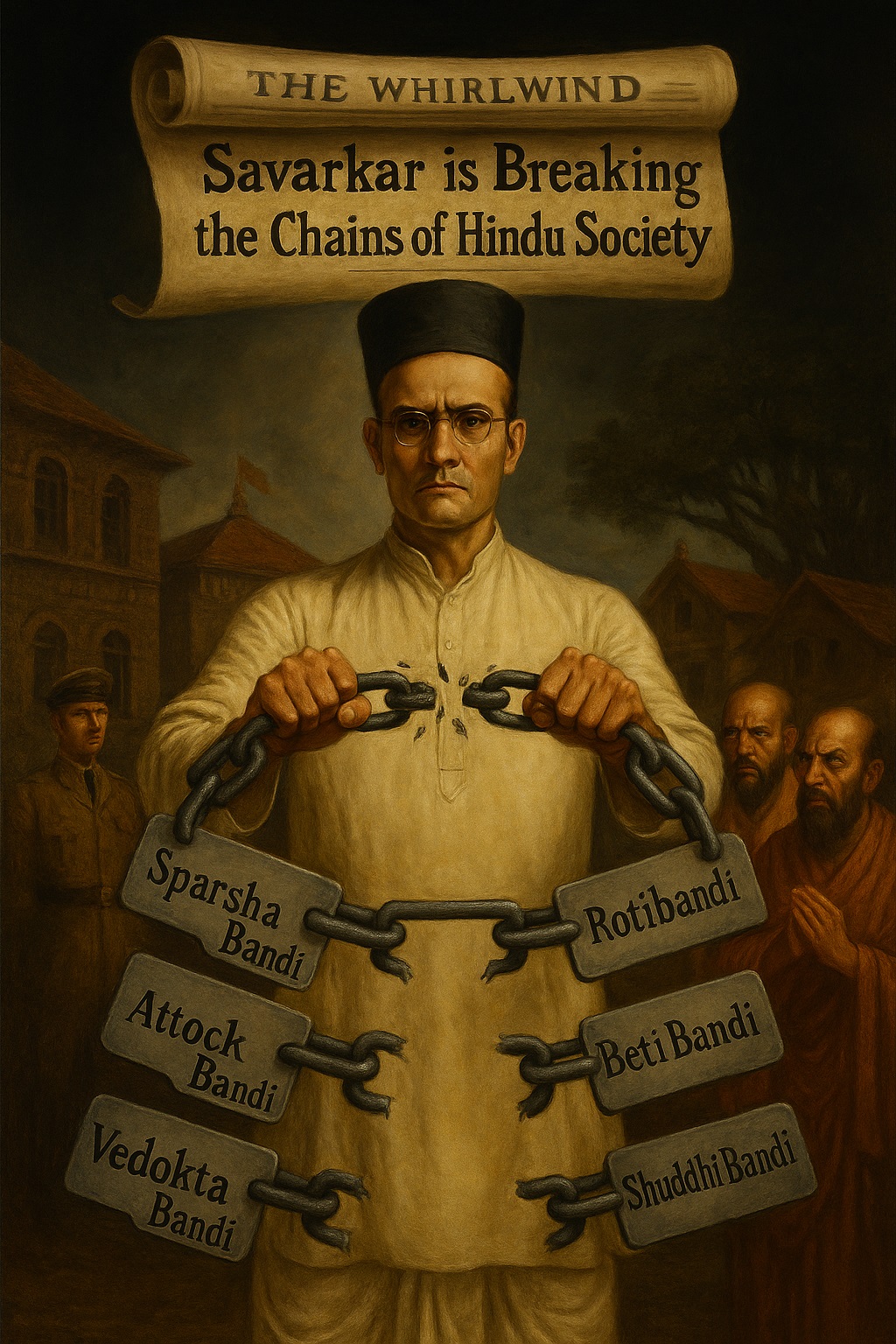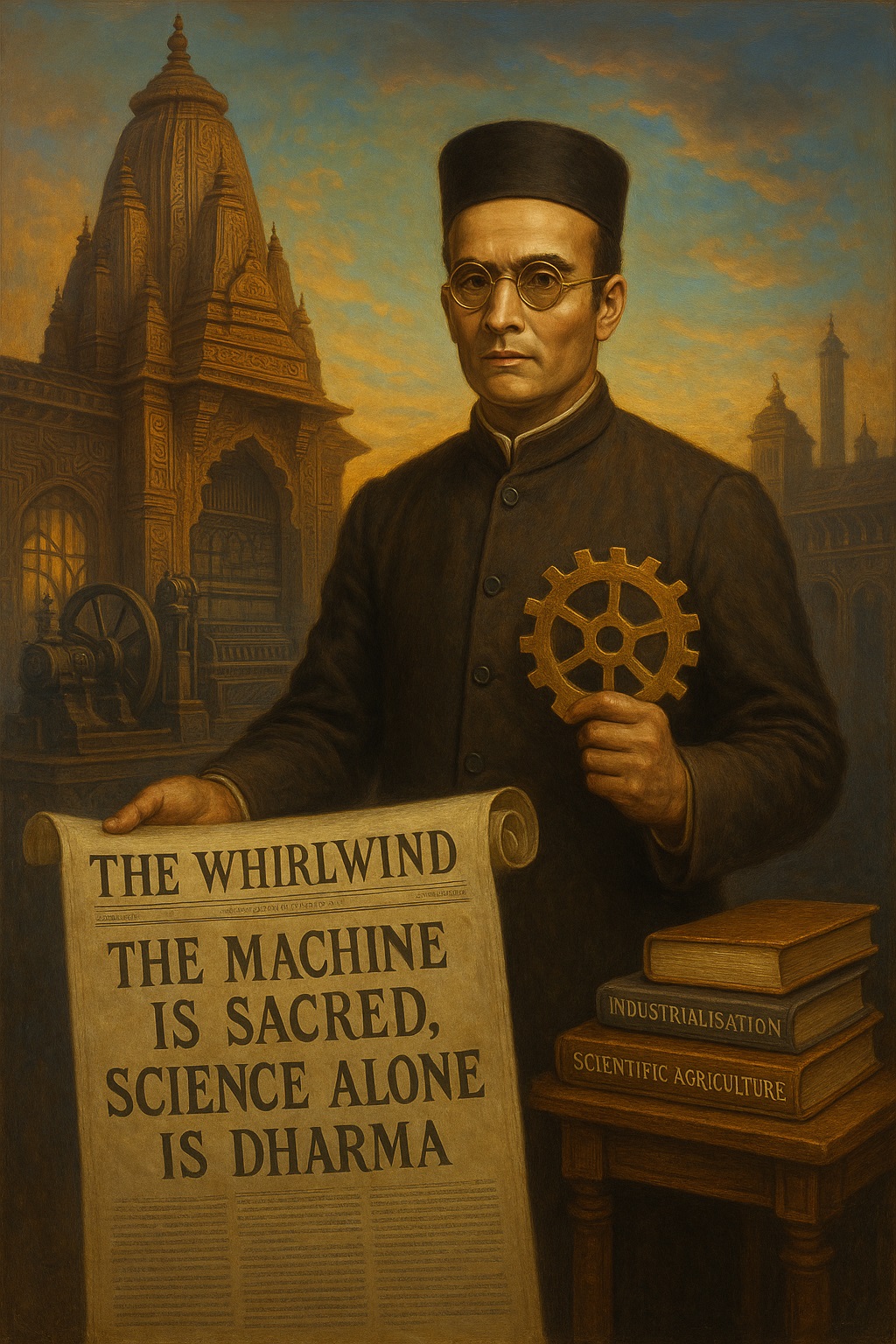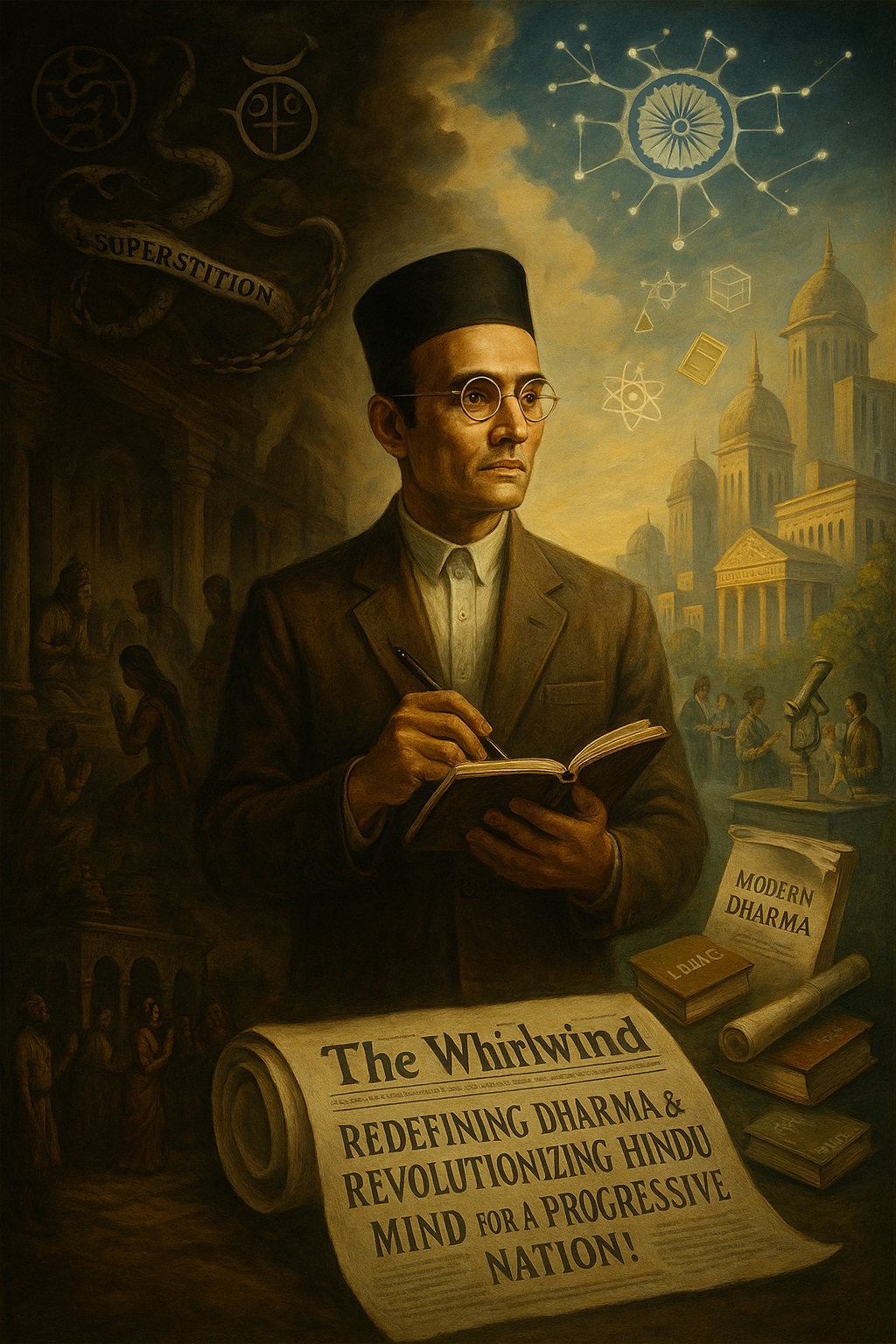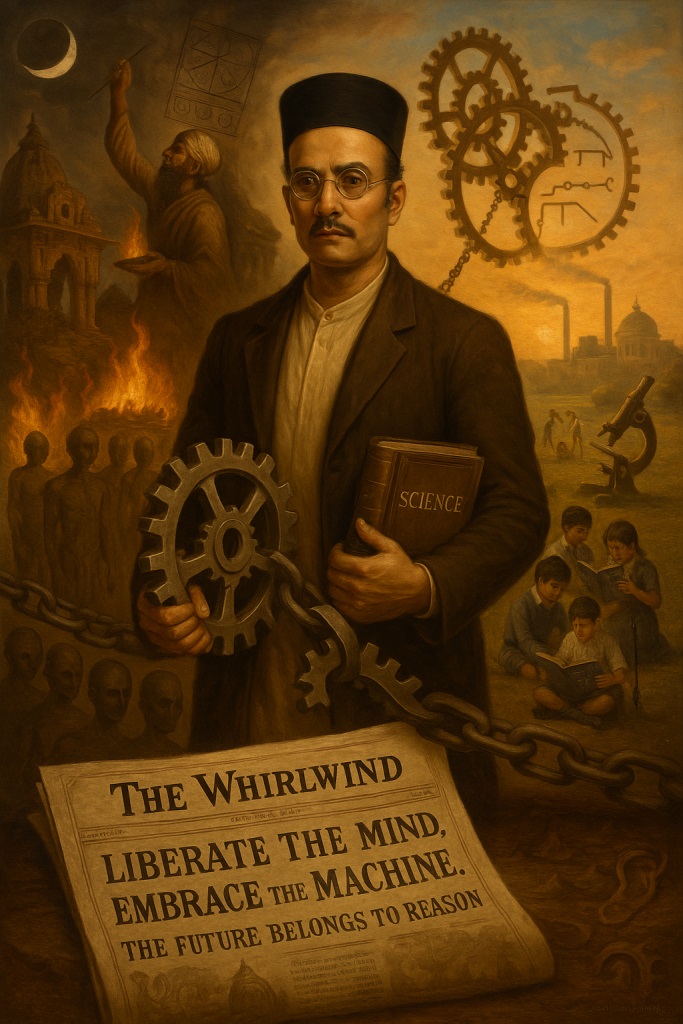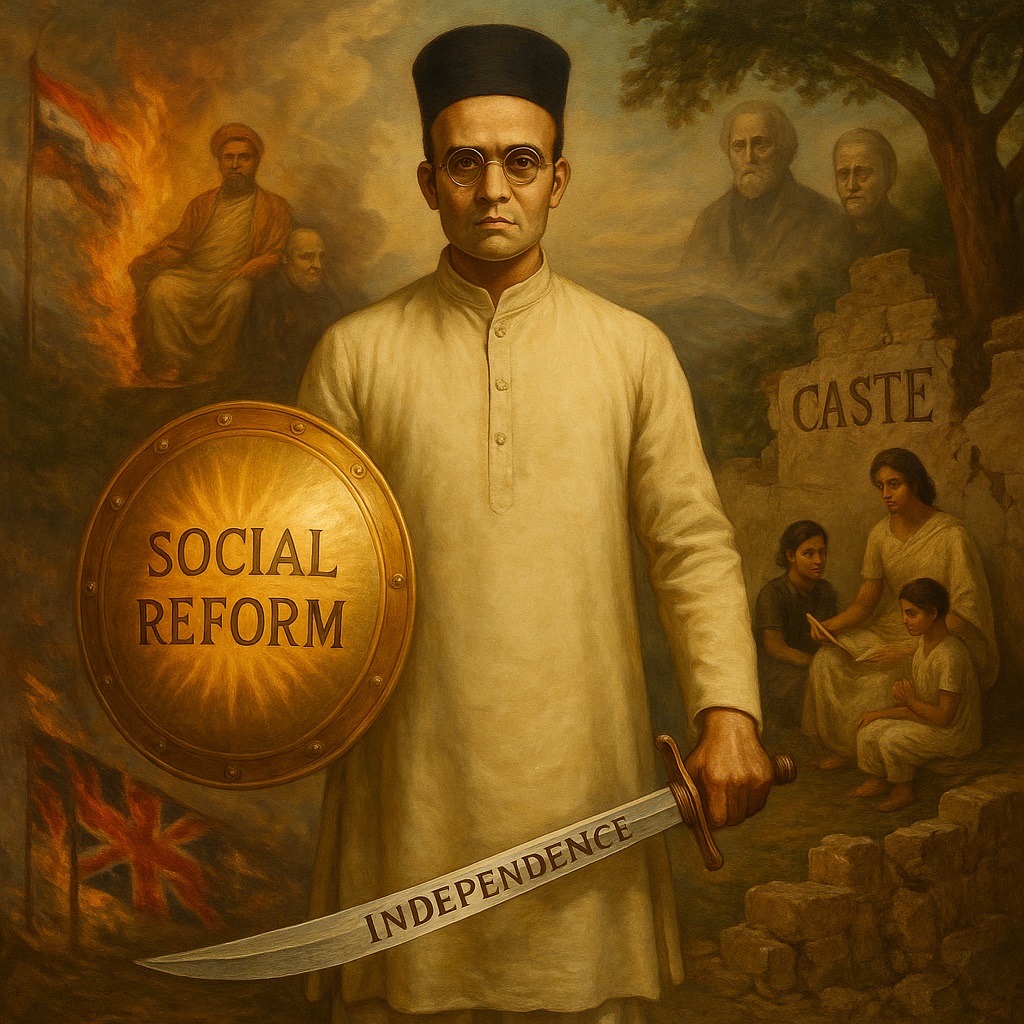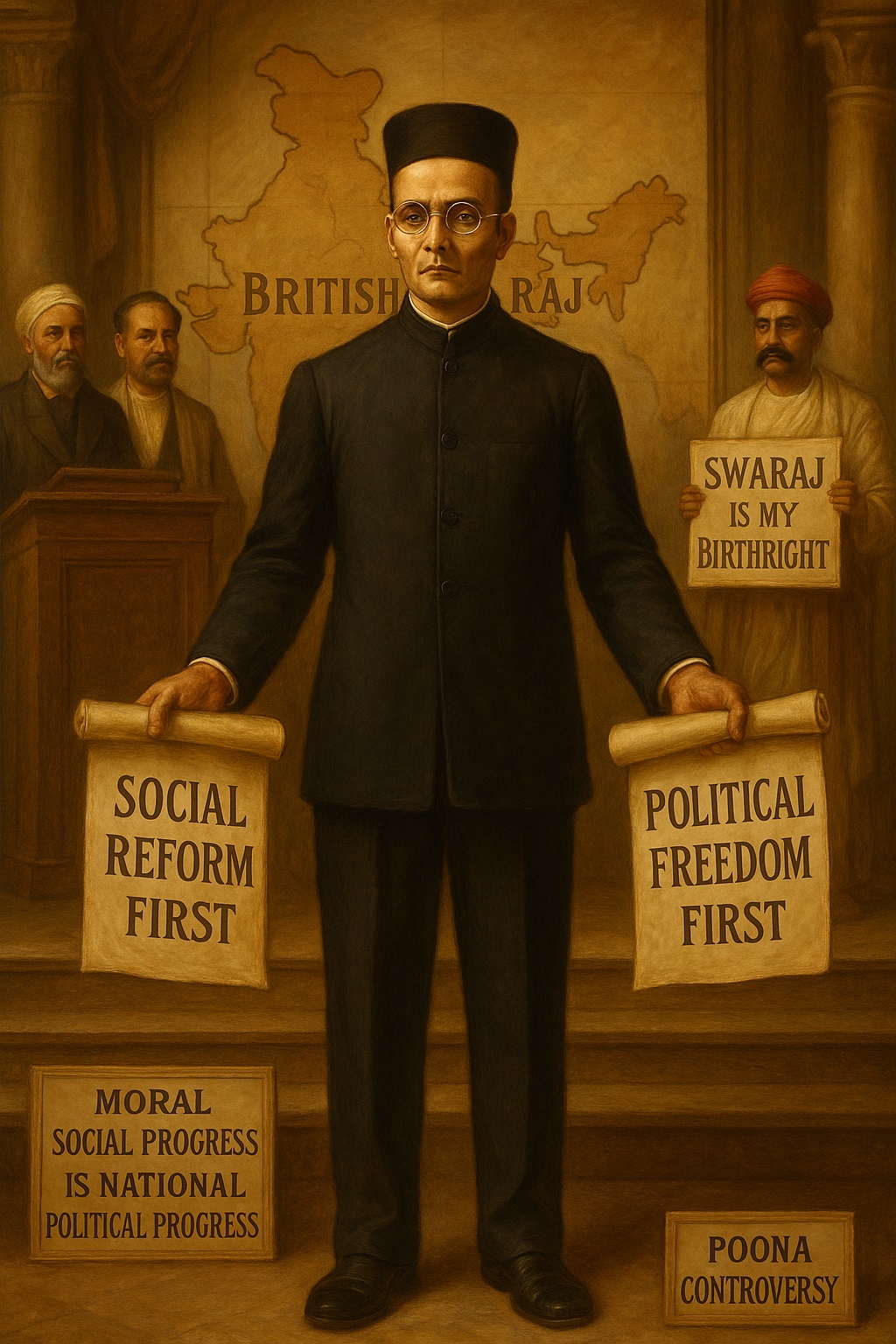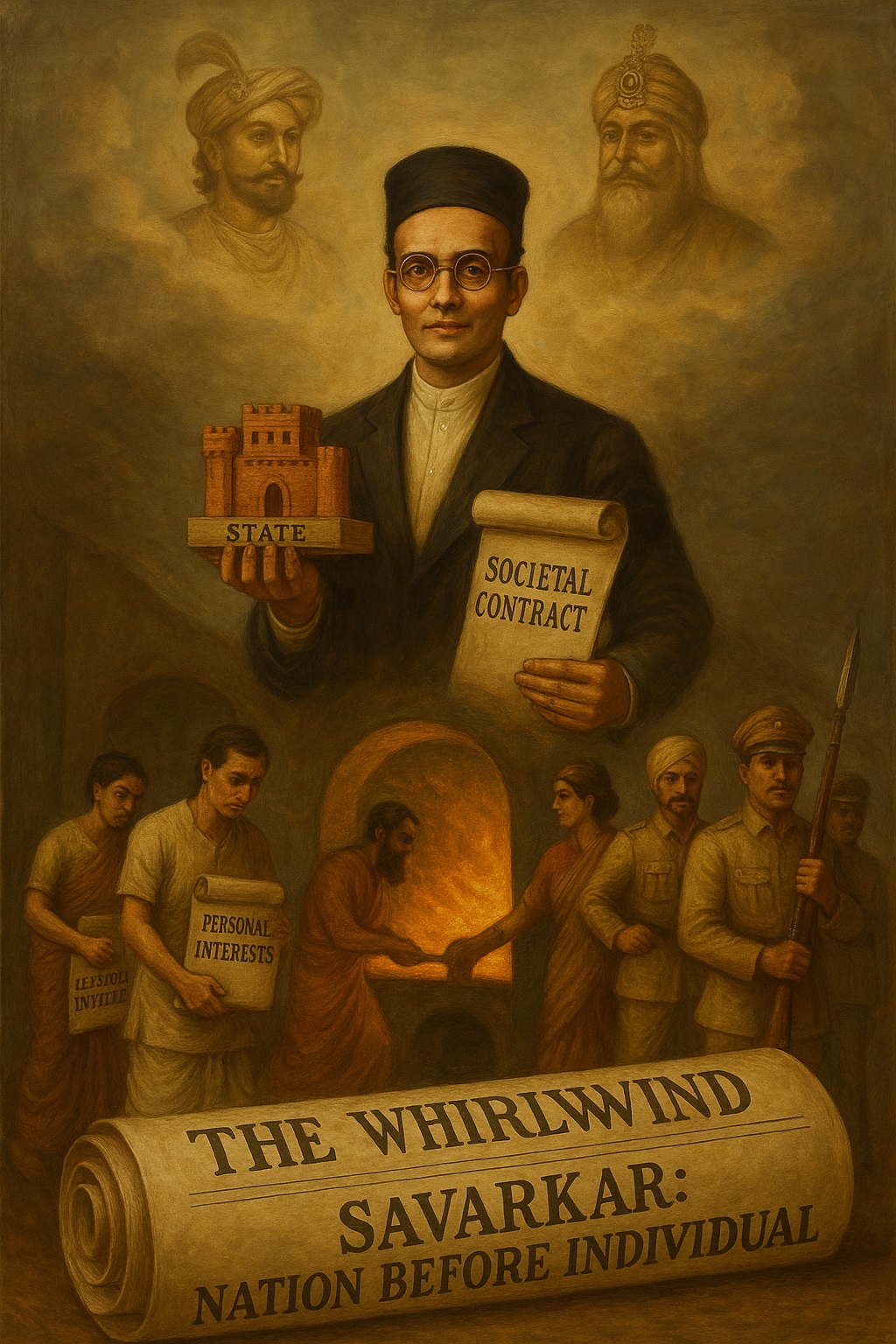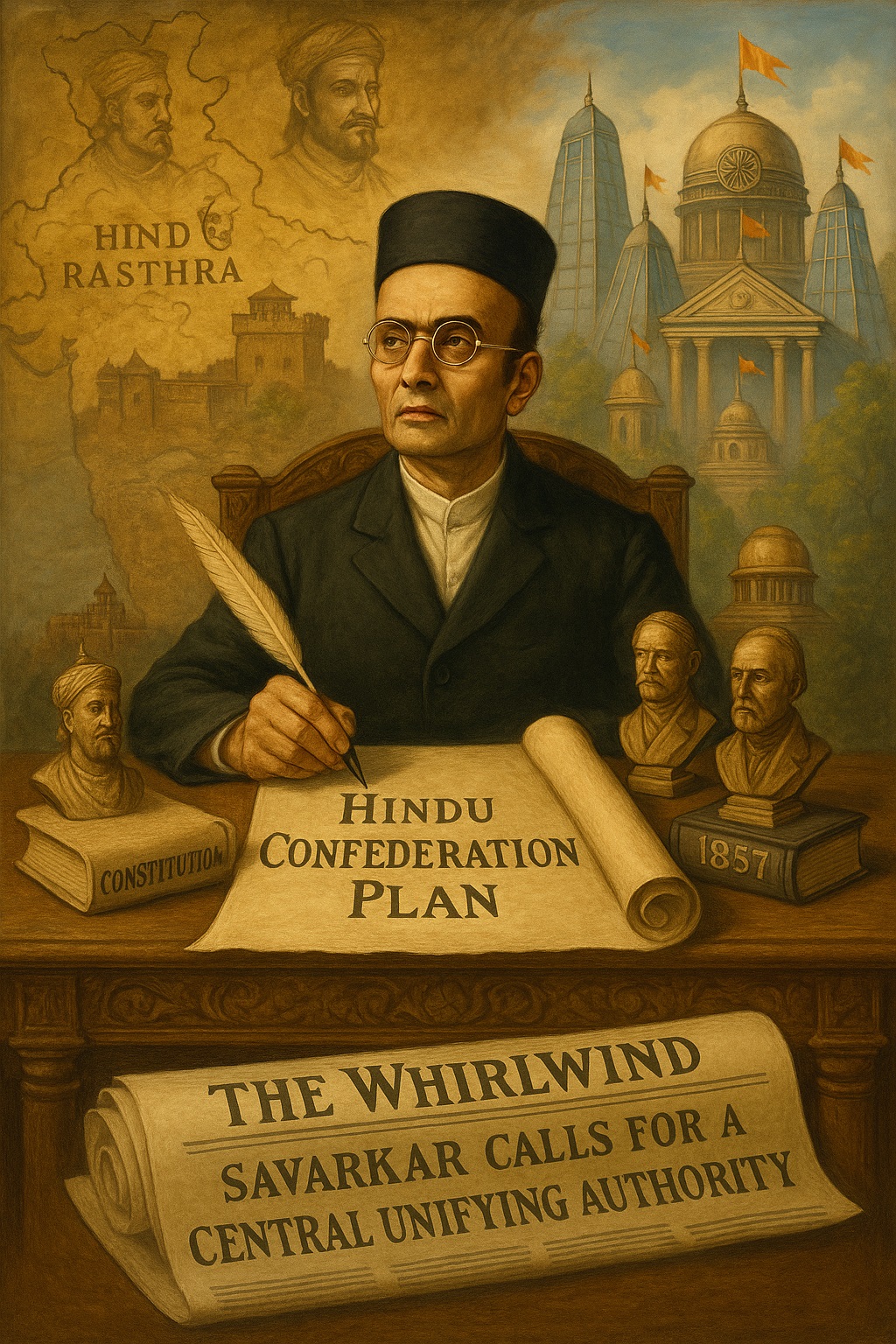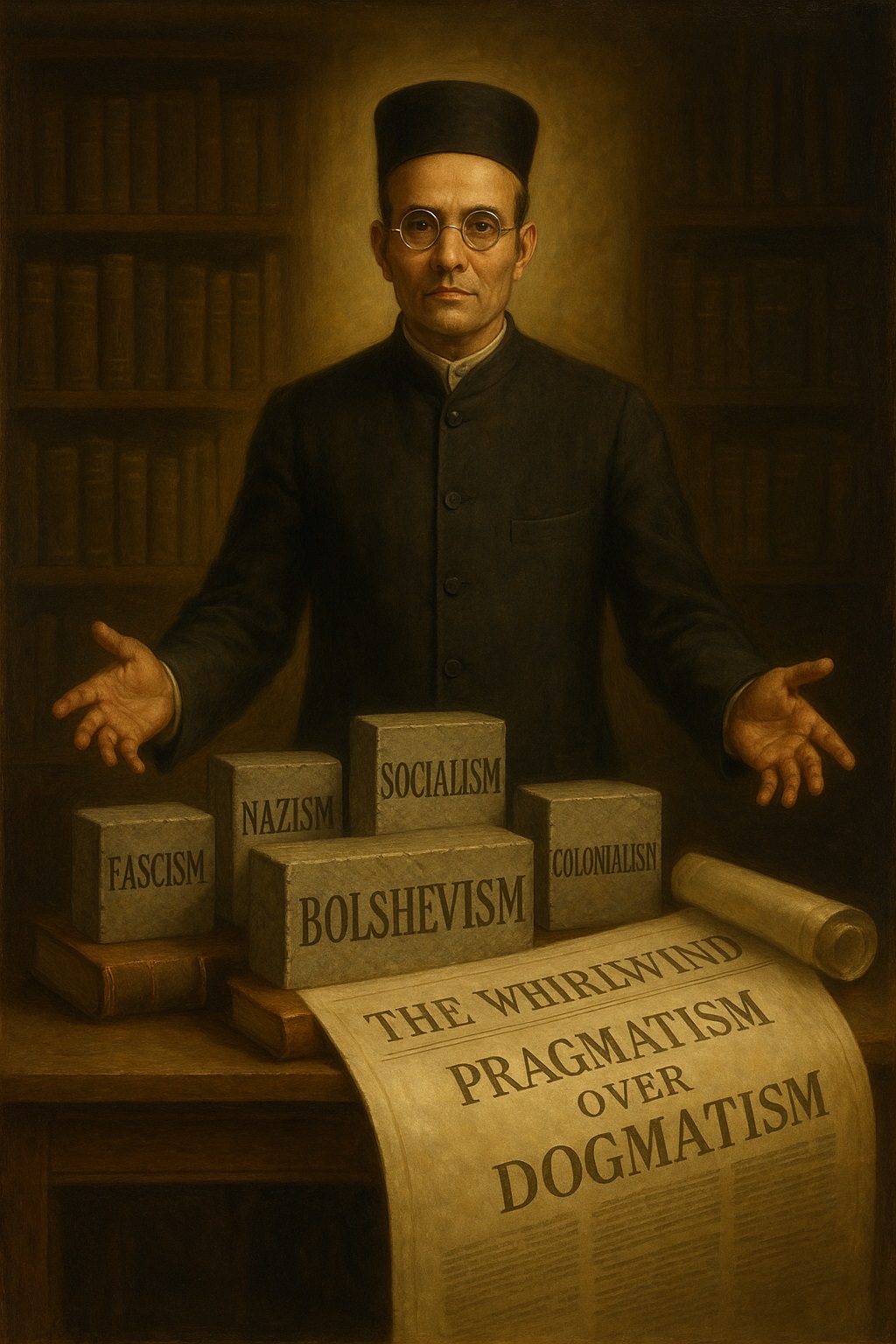Tag: Savarkar
-
Political Dimension of Hindutva, Part 5 In his political thought, Vinayak Damodar Savarkar presents a vision that is deeply entwined with the idea of collective identity and the supremacy of the nation. His ideas reflect the notion that individual interests must be subordinated to the common good, especially in the context of a nation striving…
-
Political Dimension of Hindutva, Part 4 When envisioning the future of Hindu Rashtra, Vinayak Damodar Savarkar did not propose a rigid, fixed model of governance. Instead, his ideas evolved within the historical and political context of his time. Rather than outlining a single, comprehensive framework, Savarkar explored various possibilities, ranging from a constitutional monarchy in…
-
Political Dimension of Hindutva, Part 3 One of the most defining aspects of Vinayak Damodar Savarkar’s political and social thought is his categorical rejection of rigid, doctrinal frameworks – whether political or religious (Savarkar 1941:50ff; 1999:52). He distances himself from any ideology or movement that is characterized by the suffix “isms”, believing that such rigid…
-
Political Dimension of Hindutva, Part 2 Vinayak Damodar Savarkar had a political vision that extended far beyond the borders of India. His understanding of politics was not limited to governance within a nation-state but encompassed a broader, global perspective. Central to his political philosophy was the idea of responsive cooperation, a pragmatic approach that balanced…

